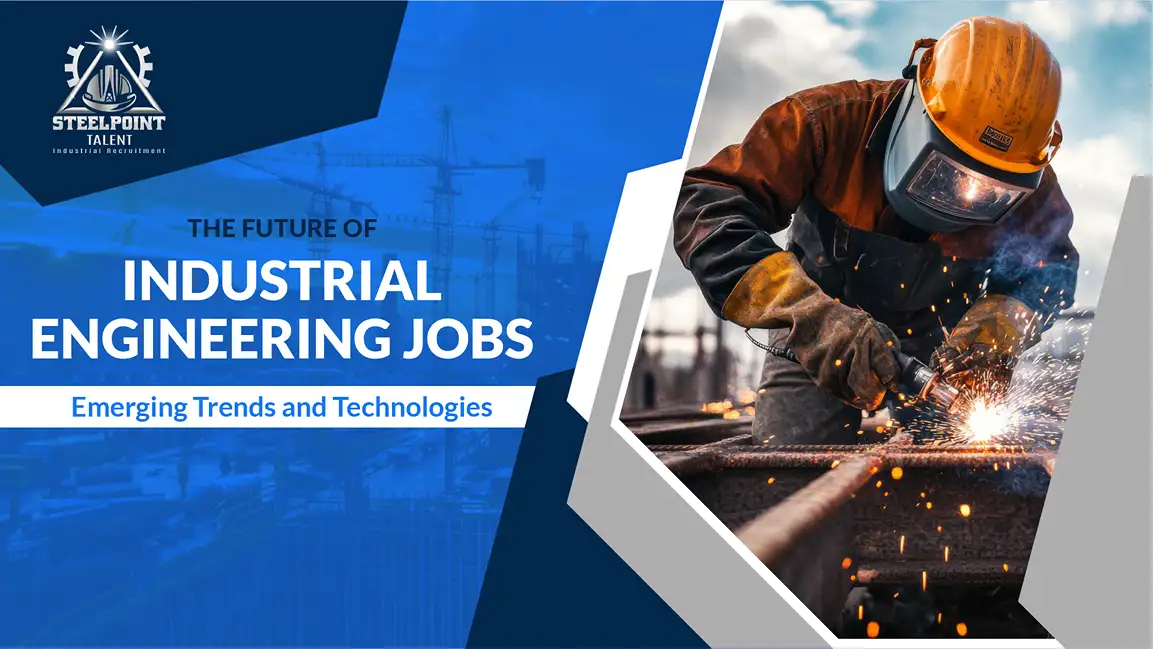Understanding the Scope of Fleet Industry Jobs
Fleet industry jobs have evolved significantly over the past decade, reflecting the rapid growth and strategic importance of fleet management across multiple sectors. As industries such as mining, oil and gas, transportation, and heavy manufacturing increasingly rely on efficient fleet operations, demand for skilled professionals in both operational and managerial roles continues to rise. This surge highlights the critical role fleet industry jobs play in driving organizational performance, cost optimization, and compliance.
Technological adoption has been a major catalyst in reshaping the landscape of fleet industry jobs. Advanced telematics, AI-driven route optimization, predictive maintenance platforms, and cloud-based fleet management systems are creating new career opportunities that require both technical expertise and strategic thinking. At the same time, sustainability initiatives are influencing hiring priorities, as companies seek professionals capable of managing electric vehicles, hybrid fleets, and eco-friendly operations.
Within this dynamic environment, fleet industry jobs generally fall into two categories: in-house roles focused on analytics, compliance, and operational planning, and field roles emphasizing hands-on work, such as vehicle maintenance, inspections, and driving. Both streams are essential to the smooth operation of a modern fleet, and understanding their distinctions is crucial for professionals exploring career paths in this expanding sector. Truck driving jobs and other driving industry jobs form a core component of field roles, providing the backbone of fleet operations while interfacing directly with logistical and safety protocols.
Fleet Management Industry Growth: Opportunities for Careers
The global fleet management sector is growing rapidly, with significant investments in digital solutions, electrification, and telematics across Europe, North America, and Asia-Pacific. This expansion is creating a wide range of in-house roles and field positions, including driving industry jobs, to support efficient, technology-driven operations.
In-house positions, such as analysts, operations managers, and compliance specialists, focus on leveraging data and predictive analytics to optimize fleet performance and reduce costs. Field roles, including driving industry jobs, support daily operations such as vehicle maintenance, logistics, and safe transportation, particularly in sectors like mining, oil and gas, and heavy industry.
Telematics, IoT systems, and cloud platforms provide real-time tracking, predictive maintenance, and data-driven decision-making. The transition to electric and hybrid fleets is also creating new responsibilities and specialized jobs in both strategic and operational areas.
Understanding In-House Fleet Roles
In-house fleet positions are the strategic backbone of modern fleet management, enabling experts to drive operational efficiency, cost optimization, and regulatory compliance. These professionals have a wide range of duties, including fleet analytics and route planning, procurement, maintenance monitoring, and compliance management. As more firms implement digital platforms, AI-powered analytics, and predictive maintenance systems, the demand for in-house knowledge has increased, making these fleet industry jobs more strategic and gratifying.
Key Responsibilities of In-House Roles
In-house fleet positions focus on planning, coordination, and analysis rather than direct vehicle operation. Core responsibilities typically include:
- Fleet Analytics and Data Management: Using telematics and IoT data to monitor vehicle performance, optimize routes, and reduce downtime.
- Compliance and Safety Oversight: Ensuring adherence to environmental, safety, and regulatory standards across all fleet operations.
- Procurement and Cost Management: Managing vehicle acquisition, service contracts, and cost-control initiatives to maximize ROI.
- Technology Integration: Implementing AI, predictive maintenance tools, and cloud-based systems to enhance operational efficiency.
These responsibilities make in-house fleet industry jobs ideal for professionals with strong analytical, technical, and leadership skills who want to contribute to long-term strategic goals.
Skills and Expertise Required
Professionals in these roles need a combination of technical knowledge, analytical ability, and project management skills. Key competencies include:
- Proficiency with fleet management software, telematics platforms, and IoT devices.
- Understanding of regulatory requirements, sustainability standards, and environmental compliance.
- Data-driven decision-making to optimize operations and reduce operational costs.
- Leadership and coordination skills for managing cross-functional teams and vendor relationships.
Career Growth and Opportunities
In-house fleet positions often serve as gateways to senior and executive roles in the fleet management industry. Professionals can advance from fleet analysts or coordinators to operations managers, compliance directors, and finally executive positions that supervise all fleet operations. These positions have significant visibility within businesses and are increasingly crucial to strategic decision-making, underscoring the growing importance of fleet jobs in driving operational excellence.
While these roles are primarily office-based, understanding field operations remains essential. In-house teams often coordinate closely with personnel holding driving industry jobs and truck driving jobs, ensuring that operational plans, maintenance schedules, and safety protocols are executed effectively. This integration between in-house planning and field execution highlights the interconnected nature of modern fleet industry jobs.
Exploring Field Roles in Fleet Management
Field responsibilities in fleet management are the operational bedrock of any fleet, ensuring that cars, drivers, and equipment run smoothly, safely, and consistently. These jobs are crucial for executing plans created by in-house teams and ensuring seamless day-to-day operations. For professionals seeking hands-on experience, field positions offer demonstrable impact, skill development, and the opportunity to engage directly with cutting-edge fleet technology.
Core Responsibilities of Field Roles
Field positions encompass a variety of hands-on tasks that support operational performance and compliance:
- Vehicle Operation: Drivers perform scheduled deliveries, route management, and logistics execution. Truck driving jobs are essential for the safe, on-time movement of goods.
- Maintenance and Inspections: Technicians and service personnel conduct regular maintenance, troubleshoot issues, and ensure vehicles comply with safety standards.
- Safety and Compliance Enforcement: Field staff monitor adherence to environmental regulations, operational protocols, and fleet safety procedures.
- Technology Utilization: Many field roles now involve using telematics devices, GPS systems, and digital maintenance platforms to optimize performance and support in-house data analysis.
Skills and Expertise Required
Field roles require technical knowledge, practical skills, and operational awareness. Key competencies include:
- Proficiency in vehicle operation, safety protocols, and route optimization.
- Knowledge of vehicle maintenance, inspections, and repair procedures.
- Familiarity with telematics and fleet management software to support data collection and compliance reporting.
- Strong communication and coordination skills to work effectively with in-house teams and other field personnel.
Career Opportunities in Field Roles
Field positions are not only entry points into the fleet management sector but also offer long-term career growth. Professionals in driving industry jobs and truck driving jobs can advance into supervisory roles, fleet training positions, or transition to in-house analytical and management roles. With technology integration and sustainability initiatives increasing the complexity of fleet operations, field roles now offer broader exposure to strategic processes, enhancing career potential and long-term employability in the fleet industry.
The combination of technical, operational, and data-driven tasks ensures that field jobs remain critical to the overall success of fleet operations. By bridging the gap between strategic planning and execution, field specialists immediately contribute to operational efficiency, cost savings, and organizational ROI, making fleet industry jobs both necessary and gratifying.
Comparing In-House vs. Field Roles
Understanding the distinctions between in-house and field roles is critical for professionals exploring fleet industry jobs. Both streams are essential for modern fleet operations, yet they differ in responsibilities, skill sets, and career trajectories. By comparing these roles, organizations and job seekers can better align talent with operational needs and strategic goals.
Responsibilities and Daily Operations
- In-House Roles: Focus on planning, analytics, compliance, and technology integration. Professionals in these positions oversee fleet performance, manage budgets, ensure regulatory adherence, and implement digital solutions to optimize operational efficiency. These roles directly influence ROI and strategic decision-making.
- Field Roles: Emphasize hands-on execution, including vehicle operation, maintenance, safety checks, and logistical coordination. Driving industry jobs and truck driving jobs form the core of field operations, ensuring that fleet strategies are implemented safely and efficiently on the ground.
Skills and Qualifications
- In-House: Requires strong analytical abilities, knowledge of fleet management software, data interpretation, and leadership skills. Professionals often manage vendor relationships, optimize routes, and coordinate with field teams to ensure seamless operations.
- Field: Demands technical proficiency, operational awareness, and practical problem-solving. Employees must understand vehicle mechanics, safety protocols, route optimization, and compliance requirements. Experience in driving industry jobs or truck driving jobs can provide a strong foundation for field roles.
Career Advancement and ROI
- In-House: Offers clear pathways to management and executive positions. Professionals can advance from fleet analysts to operations managers, compliance directors, and fleet executives. In-house roles are increasingly strategic, shaping company-wide initiatives in efficiency, sustainability, and cost control.
- Field: Provides hands-on experience that can lead to supervisory positions, specialized maintenance roles, or transitions into in-house analytical or managerial roles. Field experience is highly valued, as it combines operational insight with practical knowledge of fleet systems, telematics, and compliance processes.
By understanding these distinctions, professionals can evaluate which fleet industry jobs align with their skills, career goals, and interest in either strategic planning or operational execution. Both in-house and field roles are increasingly interconnected, with field teams providing real-world insights that inform in-house decisions. In contrast, in-house teams supply the data and strategic guidance necessary for effective field operations.
Challenges in Fleet Industry Jobs
Fleet industry jobs offer significant career opportunities, but professionals in this sector face a range of operational and strategic challenges. Rising service and maintenance costs, volatile fuel prices, and labor shortages are among the most pressing issues affecting both in-house and field roles. For organizations, these challenges directly impact ROI and operational efficiency, increasing the need for skilled personnel who can navigate complex logistics and maintain productivity.
Another critical challenge is technology adoption. While telematics, AI, and predictive maintenance tools improve efficiency, integrating these systems requires expertise and training. Professionals in fleet industry jobs must adapt to evolving software platforms, data-driven decision-making, and automation tools, ensuring that both driving industry jobs and truck driving jobs remain aligned with operational and compliance standards.
Compliance pressures also shape the landscape of fleet industry jobs. Regulations on emissions, safety, and reporting demand careful oversight, particularly for in-house teams managing fleet analytics and for field teams executing daily operations. Labor retention is equally necessary, as experienced drivers and technicians underpin the efficiency of fleet operations, making truck driving jobs and other driving industry jobs critical to long-term success.
Despite these hurdles, individuals with technical understanding, operational experience, and strategic insight are in high demand. Fleet industry jobs that effectively handle these challenges have a substantial organizational impact, helping to achieve cost efficiency, regulatory compliance, and sustainability goals across industries.
The Future of Fleet Industry Careers
The future of fleet industry jobs is being shaped by technological innovation, sustainability initiatives, and evolving operational demands. As fleets adopt connected systems, predictive analytics, and electrification, the skill requirements for both in-house and field roles are changing, creating new career opportunities and growth pathways.
Technology-Driven Transformation
Advanced telematics, AI, and cloud-based platforms are revolutionizing fleet operations. Fleet industry jobs now increasingly demand professionals who can leverage real-time data to optimize routes, predict maintenance needs, and ensure operational efficiency. Driving industry jobs, including truck driving jobs, are also evolving, with field personnel using telematics and digital tools to support in-house analytics and decision-making.
Sustainability and Electrification
The transition to electric and hybrid vehicles is redefining fleet management practices. Fleet industry jobs are now incorporating sustainability-focused responsibilities, including emissions compliance, green fleet operations, and energy-efficient logistics planning. Field roles, including truck driving jobs, require additional training in EV operation and eco-efficient driving practices, while in-house teams integrate sustainability metrics into broader operational strategies.
Strategic and Career Growth Opportunities
Fleet industry jobs of the future offer not only operational impact but also strategic influence. In-house roles provide pathways into management and executive positions, while field roles allow for advancement into supervisory or specialized technical positions. Driving industry jobs and truck driving jobs remain foundational to operational success. Still, exposure to technology and sustainability initiatives enhances career growth potential, making these positions more rewarding and dynamic than ever.
Professionals with technical expertise, operational experience, and strategic insight will be well-positioned to promote efficiency, sustainability, and long-term organizational success as the fleet sector grows.
Is a Fleet Career Right for You?
Fleet industry jobs offer rewarding career paths for professionals with a combination of technical, analytical, and operational skills. Roles range from in-house positions focused on data, compliance, and fleet strategy to field positions such as driving industry jobs and truck driving jobs that support day-to-day operations. The diversity of responsibilities ensures that individuals can find a role aligned with their strengths, career goals, and interest in either strategic planning or hands-on execution.
Modern fleet industry jobs provide competitive compensation and clear career progression. In-house professionals can advance from analysts or coordinators to operations managers and executive roles overseeing entire fleets. Field professionals gain operational expertise that can lead to supervisory positions, specialized maintenance roles, or transitions into in-house management. The ongoing integration of technology and sustainability initiatives further enhances the strategic importance of these positions, creating opportunities for growth and long-term career security.
For those considering fleet industry jobs, adaptability, a willingness to embrace new technologies, and a focus on efficiency and compliance are key success factors. Truck driving jobs and driving industry jobs are not only essential for operational performance but also provide exposure to evolving fleet technologies and sustainability practices, making these careers both practical and forward-looking.
Navigating Careers in the Fleet Industry
Fleet industry jobs are evolving rapidly, driven by technology, sustainability, and operational demands. Both in-house and field roles offer valuable opportunities for career growth, combining strategy, analytics, and hands-on experience.
Professionals entering fleet industry jobs today can expect dynamic responsibilities, clear advancement paths, and long-term career stability. By understanding the differences between in-house and field roles and embracing emerging technologies, individuals can make a tangible impact on efficiency, cost optimization, and the future of fleet operations.
If you’re looking to explore rewarding opportunities in fleet industry jobs, driving industry jobs, or truck driving jobs, connect with Steelpoint today. Our team helps professionals and employers build stronger, smarter, and more efficient fleets, empowering your next career move in the evolving world of fleet management.








